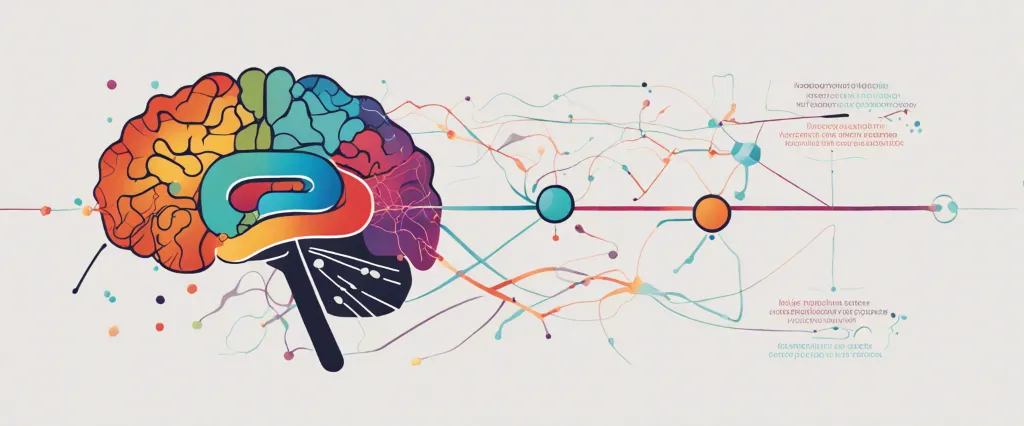——The Telomere Effect by Elizabeth Blackburn & Brief Answers to the Big Questions by Stephen Hawking

In an era of rapid technological advancements and groundbreaking discoveries, our understanding of the human experience has expanded exponentially. Explorations into the mysteries of life and the universe have been paramount in shaping our worldviews and challenging conventional wisdom. Two recently published books, “The Telomere Effect” by Elizabeth Blackburn and “Brief Answers to the Big Questions” by Stephen Hawking, offer captivating insights into two distinct yet interconnected domains of human existence – health and cosmology.
The Telomere Effect” written by Nobel laureate, Elizabeth Blackburn, in collaboration with Elissa Epel, delves into the fascinating realm of cellular aging and its profound impact on health and well-being. As one of the pioneers in telomere research, Blackburn elucidates the significance of telomeres, the protective caps at the end of chromosomes, and their vital role in determining the rate of cellular aging. Drawing upon extensive scientific evidence and compelling anecdotes, the authors explore how lifestyle choices and environmental factors can influence telomere length, thereby affecting our susceptibility to disease and our overall lifespan. With an emphasis on the potential for positive changes in our daily habits to promote healthier aging, Blackburn and Epel provide readers with practical strategies to enhance their well-being and extend their “healthspan.
On the other end of the intellectual spectrum, “Brief Answers to the Big Questions” offers readers a glimpse into the magnificent mind of renowned physicist and cosmologist, Stephen Hawking. Compiled posthumously by his family and colleagues, this book delves into some of the most profound and enigmatic queries humanity has pondered throughout history. From the nature of black holes to the existence of extraterrestrial life, Hawking tackles these complex questions with his characteristic brilliance and wit. Drawing upon his vast knowledge of theoretical physics and cosmology, Hawking provides readers with accessible and thought-provoking explanations that challenge our fundamental understanding of the universe. Despite his untimely demise, Hawking leaves behind a legacy of curiosity, scientific progress, and a burning desire to unravel the mysteries of our existence.
While seemingly dissimilar in their subject matter, “The Telomere Effect” and “Brief Answers to the Big Questions” share a profound commonality – an unyielding quest for knowledge and a relentless pursuit of truth. Both Blackburn and Hawking exemplify the power of scientific inquiry and the impact it can have on our lives. Through their respective lenses of biology and astrophysics, these books invite us to ponder the interplay between the microscopic and the cosmic, and the profound connections that exist between them. Join us on this comparative exploration as we delve into the depths of the human condition, unravelling the mysteries of life, from the cellular level to the vastness of the cosmos.
Brief Summary of Two Books
The Telomere Effect by Elizabeth Blackburn
The Telomere Effect” by Elizabeth Blackburn and Elissa Epel is a groundbreaking book that explores the science behind telomeres, protective caps at the ends of our chromosomes, and their impact on our health, aging, and overall well-being.
Elizabeth Blackburn, a Nobel Prize-winning scientist, and Elissa Epel, a health psychologist, combine their expertise to present compelling evidence that suggests telomeres can be an essential biological marker for understanding how our lifestyle choices and emotional experiences affect our cellular health. They delve into the link between telomeres and various diseases like cancer, diabetes, obesity, and even mental health conditions such as depression and stress.
The book reveals how stress, poor nutrition, lack of exercise, and exposure to harmful environmental factors can shorten telomeres, leading to accelerated aging and increased susceptibility to diseases. On the other hand, they also offer hope by highlighting the positive impact of healthy behaviors like exercise, meditation, quality sleep, and a supportive social network in maintaining and even lengthening our telomeres, promoting better health and longevity.
Supported by scientific studies and personal anecdotes, the authors provide practical tips on how to adopt a telomere-protective lifestyle. They shed light on the power of mindfulness and stress reduction techniques, proper nutrition, exercise, and cultivating social connections to positively influence telomeres and subsequently improve overall well-being.
“The Telomere Effect” is a comprehensive book that not only educates readers about the importance of telomeres but also empowers them to make meaningful changes in their lives to enhance their health and longevity. By understanding and harnessing the potential of telomeres, readers can take control of their own biological age and pave the way for a healthier, happier future.
Brief Answers to the Big Questions by Stephen Hawking
Brief Answers to the Big Questions by Stephen Hawking is a posthumously published collection of essays where the renowned physicist and cosmologist tackles some of the most significant questions humanity has pondered for centuries. The book serves as a testament to Hawking’s brilliance and the immense impact he had on our understanding of the universe.
Hawking discusses a range of topics, from the possibility of extraterrestrial life to the future of artificial intelligence, delving into the realms of physics, philosophy, and cosmology. He addresses the ultimate question of whether a divine being exists and explores the origins and nature of the universe, presenting a brief history of scientific discoveries in these domains.
Hawking’s work emphasizes the importance of reason, evidence-based thinking, and scientific advancement. He provides a clear and concise overview of complex scientific concepts, making them accessible to a general audience.
The book also touches on Hawking’s personal experiences and challenges, including his battle with amyotrophic lateral sclerosis (ALS) which confined him to a wheelchair and limited his ability to communicate. Despite these obstacles, Hawking’s determination and curiosity shine through in his writing.
While the book acknowledges the vastness of our ignorance, it encourages readers to continue exploring the big questions and searching for answers. It serves as a tribute to Hawking’s enduring legacy as a visionary, and inspires us to continue pushing the boundaries of human knowledge and understanding.
Comparison between Two Books

Similarities in Mysteries of Our Body
The similarities between The Telomere Effect by Elizabeth Blackburn and Brief Answers to the Big Questions by Stephen Hawking, regarding the topic of Mysteries of Our Body, are as follows:
1. Exploration of fundamental questions: Both books delve into the mysteries surrounding various aspects of our bodies. Blackburn’s book focuses on telomeres, the protective caps at the end of our chromosomes, and how they affect aging and overall health. Hawking’s book, on the other hand, addresses broader questions about the universe and human existence, including the mysteries of our bodies.
2. Scientific approach: Both Blackburn and Hawking approach their subjects using a scientific lens, relying on rigorous research, evidence, and theories. They present complex ideas in a manner that is accessible to the general reader, making it easier to understand the mysteries surrounding our bodies.
3. Multidisciplinary perspective: Both books draw from various scientific fields, incorporating knowledge from genetics, biology, physics, cosmology, and more. They highlight how different areas of study contribute to our understanding of the mysteries of our bodies and the universe.
4. Implications for humanity: Both Blackburn and Hawking discuss how unraveling the mysteries of our bodies can have significant implications for human health and well-being. Blackburn’s research on telomeres, for instance, provides insights into aging-related diseases and potential interventions to promote healthy aging. Similarly, Hawking’s exploration of fundamental questions sheds light on the nature of human existence and our place in the universe.
5. The expansion of knowledge: Both authors emphasize how our understanding of the mysteries of our bodies is constantly evolving. They acknowledge that there are still many unanswered questions, which serve as a driving force for further scientific exploration and research.
Overall, while these books approach the mysteries of our bodies from different angles, they share a common goal of unraveling these enigmas and emphasizing the importance of scientific inquiry in deepening our understanding.
Divergences in Mysteries of Our Body
“The Telomere Effect” by Elizabeth Blackburn and “Brief Answers to the Big Questions” by Stephen Hawking are two very different books, written by renowned scientists exploring distinct areas of scientific research. While “The Telomere Effect” delves into the science of aging and its impact on our health and well-being, “Brief Answers to the Big Questions” tackles significant scientific inquiries about the universe and human existence as a whole. As such, the two books have fairly distinct focuses and diverge when it comes to exploring the mysteries of our body.
In “The Telomere Effect,” Elizabeth Blackburn and co-author Elissa Epel explore the science behind telomeres, which are the protective caps at the ends of our chromosomes. The book delves into the role of telomeres in the aging process, chronic diseases, and overall health. Blackburn discusses how certain lifestyle factors, such as stress, diet, exercise, and social connections, impact telomeres and ultimately our well-being. The book’s main emphasis is on empowering individuals to take control of their health by making positive lifestyle choices to maintain healthy telomeres and thereby slow down the aging process.
On the other hand, “Brief Answers to the Big Questions” by Stephen Hawking tackles extensive questions related to the universe, including the mysteries of our existence and the nature of reality. Hawking addresses topics such as the existence of aliens, the possibility of time travel, the nature of black holes, and the potential for human colonization of other planets. While the book touches upon some aspects of biology and human anatomy, it primarily focuses on cosmology, astrophysics, and the broader questions surrounding the origin and future of our universe.
Both books provide valuable scientific insights, but their differing focuses result in a divergence when addressing the mysteries of our body. “The Telomere Effect” looks within our biological makeup, specifically exploring the fascinating world of telomeres and their impact on our health and aging. In contrast, “Brief Answers to the Big Questions” takes readers on an awe-inspiring journey through the mysteries of the cosmos, leaving the intricacies of our own bodies relatively unexplored.
To summarize, “The Telomere Effect” and “Brief Answers to the Big Questions” vary in their focus, with the former concentrating on the science of aging and our biology, and the latter exploring profound cosmic inquiries. While both books provide valuable knowledge, the divergence lies in their treatment of the mysteries of our body, with “The Telomere Effect” delving deeply into our biological processes, while “Brief Answers to the Big Questions” focuses more on cosmic mysteries and the broader universe.

Conclusion
Both The Telomere Effect by Elizabeth Blackburn and Brief Answers to the Big Questions by Stephen Hawking are highly regarded and offer valuable insights in their respective fields. The choice ultimately depends on your interests and what you are seeking from a book.
1. The Telomere Effect by Elizabeth Blackburn:
If you are interested in understanding the science of aging and want practical advice on how to improve your health and well-being, The Telomere Effect is an excellent choice. Elizabeth Blackburn, a Nobel laureate in Physiology or Medicine, provides valuable information about telomeres (tiny caps on the ends of chromosomes) and their impact on aging. This book explores how lifestyle choices and stress affect telomeres and provides strategies for maintaining longer telomeres, ultimately leading to a healthier and longer life.
2. Brief Answers to the Big Questions by Stephen Hawking:
If you are curious about the universe, space, and the big questions that have fascinated scientists and philosophers for centuries, Brief Answers to the Big Questions is a compelling read. Stephen Hawking, a renowned theoretical physicist, addresses questions related to the existence of God, the possibility of time travel, the origins of the universe, and more. This book combines scientific knowledge with Hawking’s ability to explain complex concepts in a way that is accessible to the general reader.
Ultimately, your choice should be based on your personal interests and what you hope to gain from reading either book. Both are worthy of reading, and it may be worth considering reading both if you have the time and inclination for both subjects.


